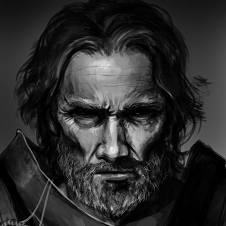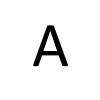-
Posts
38,238 -
Joined
-
Last visited
Content Type
Profiles
Forums
Events
Gallery
Everything posted by Ace-Garageguy
-
Very nice conversion, and the color looks great in that Southern Hemisphere sunshine.
-

Auto Quiz #320 - FINISHED
Ace-Garageguy replied to carsntrucks4you's topic in Real or Model? / Auto ID Quiz
-
Good luck. I'm kinda glad people buy these crazy things, even though it's not my bag. Hope the deal works for you.
-

Auto Quiz #320 - FINISHED
Ace-Garageguy replied to carsntrucks4you's topic in Real or Model? / Auto ID Quiz
Tried to respond, site says you "can't receive messages". -
I'm not impressed by how much horsepower somebody can buy at a dealership with a wheelbarrow full of money. Build a real 10-second car, even an 11 or 12 second car, in your own garage, I'll think that's pretty cool. But spend $80 grand just to show off your bucks, like the kiddies whose daddies bought them new Jags and Vettes in high school? Nah. I guess it's good the manufacturer can still get away with selling something so completely useless and overpowered in this wussy-world we live in now (don't get me wrong...I LOVE high-horsepower cars, but this is just silly on the street), but would I buy one if I had the jack to spare? Nope.
-

1955 Pontiac chassis
Ace-Garageguy replied to fomocomav's topic in Model Building Questions and Answers
COPYRIGHT NOTICE: Photos above taken from open internet sources under "fair use" definition in copyright law -

1955 Pontiac chassis
Ace-Garageguy replied to fomocomav's topic in Model Building Questions and Answers
After researching the subject at length several months back, I decided to do exactly that for a '55 Pontiac gasser build I'm planning, based on an old Johan shell that got stepped on, which made it a natural for a chopped-top. The Poncho frame is indeed similar in appearance to the Chebby convert frame. This is a '55 Poncho. This is a Pontiac frame from the top (AFTER the independent front suspension has been removed). Below is a '55 Chebby convert. The main visual difference is in how the Pontiac rails are forked just at the forward intersection of the X-member, and the fact that the Chebby rails are heavier, and boxed. Also notice the Chebby lower control arms are a different design, and have a kink in the leading edge that the Poncho units lack. The Pontiac control arms, from the bottom, look very much like the parts from a '49 Mercury, also available in kit form from both AMT and Revell. As far as the engine goes, I think the old Revell parts-pack Pontiac engine kit is among the best there is. Only main visual difference is that the early Pontiac engines (through '59 I think) had the water connections in the front of the heads, rather than in the more-typical center location, due to Pontiac's "reverse flow" cooling system for the first few years. Though the kit says it's a 421, all the Pontiac OHV V8 engines of the first-generation series look very much the same...other than details like intake manifolds, generator brackets, etc. NOTE: Check out this build thread for a lot of shots of the guts of a '55 Pontiac. http://www.jalopyjournal.com/forum/threads/1955-pontiac-gasser-build.501387/ -
Very evocative...makes me want to drag it home to save it, or at least buy it a tarp for Christmas. Nice touch with the expanded metal showing through the built-up roof insert. I've seen that many times.
-
Great minds think alike, obviously. That was my first thought when I saw that car.
-

PE headlight grills for '53 Corvette
Ace-Garageguy replied to TomZ's topic in Model Building Questions and Answers
Looks like you're not getting much help with this. I've never done the Corvette headlight grilles, but I HAVE done a couple of other grilles that required compound curves. They weren't as severe as what I imagine your Corvette parts to require, far as bending goes, but I DID manage to work very even and acceptable compound curves simply by very carefully "kneading" the parts with my fingertips. Slow, careful bending is all I can tell you. If you can't get the amount of curve you need, the only real other option is to make a punch-die...a pair of matched male and female tools of hardwood that have the correct curves. You place the part in between the die halves and press or hammer them together to "stamp" your metal part into shape. -

White latex Glue
Ace-Garageguy replied to Olderisbetter's topic in Model Building Questions and Answers
I read the info for the stuff you mention. It says "TOA is a premium quality general purpose polyvinyl acetate emulsion based adhesivehaving medium viscosity and good flow." -

White latex Glue
Ace-Garageguy replied to Olderisbetter's topic in Model Building Questions and Answers
If you mean "white" glue like Elmer's and Testors canopy cement, it's actually PVA (polyvinyl acetate), not latex. It will stick to paint as well as it sticks to anything else non-porous, but the bond will only be as strong as the paint bond to the car body is. If you have poorly-adhered paint, it will peel off the body, but the bond between the PVA and the paint will be fine. It's not a solvent-type cement, it dries clear, and it doesn't "fume" like CA (superglue) does, so it's the preferred method for attaching clear parts. The problem with the stuff is that it has almost NO wet strength, so you have to make sure large parts like windshields are well-fitted and securely jigged in place while the stuff sets up...if you want clean, gap-free, competent-looking results. -
All the AMT '32 bodies are more heavily sectioned towards the front. I've spent considerable time measuring and working out correction procedures for this interesting anomaly. Here's some work I started on the AMT Vicky, compared to the almost-correct Revell '32 bodies. The white strip added to the bottom of the Vicky body (after trimming on the fendered-version) is the necessary correction amount for any of the AMT '32 Fords. To complete the correction, the door lines at the bottom need to be re-scribed as well. Thread here... http://www.modelcarsmag.com/forums/topic/78983-chopped-32-vicky-amt-body-on-revell-fenders-and-rails/
-

Milner dragster updated pics 6/16/17
Ace-Garageguy replied to DrKerry's topic in WIP: Drag Racing Models
Though they're not a lot of them, there WERE some aftermarket 6-71 blower housings cast in magnesium. Danekas was one, and if it IS magnesium, chances are the outside was finished with the Dow 7 anti-corrosion process, which sounds like the color you are seeing. Bare magnesium oxidizes rapidly to a dull, dark gray. This is approximately the color of Dow7 on magnesium. -
And that, gentlemen, is a righteous '32 Ford highboy. All the right parts in all the right places.
-
He usually works with Rick Dore, and the design work is always top-notch. My personal favorite of the customs is "Slow Burn", based on an Auburn replica (not a real one, as has been stated from time to time). I could definitely drive this.
-

My Chrysler A 318 poly head engine 3d printed at home
Ace-Garageguy replied to my66s55's topic in WIP: Model Cars
Good looking carb. Remarkable resolution. I'm certainly interested in seeing how this progresses. -
Well, sein' as how I worked with the shop that built this one (for several years while it was being built...though I didn't work ON this particular car), I'd have to say I like the guy's choices as to what he spends money on.
-

HAPPY EASTER TO EVERYONE....
Ace-Garageguy replied to AC Norton's topic in General Automotive Talk (Trucks and Cars)
The day we give thanks for Marshmallow Peeps and chocolate bunnies... PS. I'm going for a hike in the woods and have a solitary thought about what this day is actually supposed to mean. -

Update on Revell Model A Coupe and Roadster kits
Ace-Garageguy replied to tim boyd's topic in Car Kit News & Reviews
Cool. Now maybe we can have 15 more pages of speculation and rumors about the new boxes. -

32 Ford Rat Rod - A project of firsts
Ace-Garageguy replied to Lunajammer's topic in WIP: Model Cars
You can do the 45-degree cut that I favor (for its simplicity in re-aligning everything) anyplace on the rails you choose, but straight cuts and triangular gussets like Lunajammer has done work equally well, and are sometimes easier...depending on the particular shape of the rails at the cut location. Different locations have different advantages. One of the disadvantages of cutting close to the firewall, along with what Draggon mentioned above, is that it can make for problems getting the engine mounted low in the chassis, leading to oddly configured engine mounts and headers that sometimes have to come straight out and then go down to clear the frame. A close-to-firewall Zee can also make running steering linkage more difficult than necessary. All reasons why thorough mockups prior to cutting anything (especially on real cars) is the favored approach. -

Sectioning a 40's Vintage Vehicle
Ace-Garageguy replied to Lunajammer's topic in Tips, Tricks, and Tutorials
Look carefully at the hood and the body and think about the cuts. If you section the hood as shown, no way in hell it will fit the cowl (which wasn't sectioned). What needs to be done to fit the hood to the cowl (in this particular instance) is to trim the lower edge of the hood (leaving where it fits the stock-height cowl alone), to allow the fenders to move up relative to the body. -
Thanks for the interest, again. I laid up a mold of the entire nose and hood, using a high-strength epoxy and very fine cloth. Not my best work to date, but I was in the big-car shop and decided to use up some resin I'd mixed for a 1:1 project. Anyway, I rushed the work a little and didn't really think the draft-angles through very well, but she'll be OK. The release was a little dicey, but the mold did finally come off with minimal damage to the plug, and no damage to the mold. The next step is to prep the tonneau and pull a mold of it. After that, the plug can be set aside or discarded, though I'll probably use the nose of the plug as a final part of this particular model. Fiberglass copies of the hood and tonneau, as well as the bellypans and decklid, will finish her up.
-

32 Ford Rat Rod - A project of firsts
Ace-Garageguy replied to Lunajammer's topic in WIP: Model Cars
Your frame Zee looks fine, and it's identical to the way countless real cars were done too. -

50's Custom reference pictures ?
Ace-Garageguy replied to Jon Haigwood's topic in General Automotive Talk (Trucks and Cars)
This particular Barris book addresses your exact needs, and the rest of the books in the series are also well worth the money. Though they were only about $15 each when I got mine, they're in the $35 range now, but still worth it in my opinion. NOTE: All 4 books are still available directly from Barris' namesake company @$35 each, so don't pay too much elsewhere.
